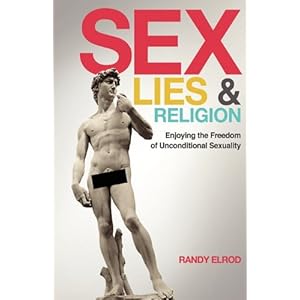 Takeaway: Sex is too important to either leave in the youth room or just make a part of an attention grabbing sermon series.
Takeaway: Sex is too important to either leave in the youth room or just make a part of an attention grabbing sermon series.
Purchase Links: Hardcover, Paperback, Kindle Edition (This is a lendable book, so first person to ask can read it for free.)
I have been reading through a number of books on sex because my wife and I are leading a newly married small group and our current topic is sex. Our curriculum is ok (When Two Become One: Enhancing Sexual Intimacy in Marriage, I will do a review on it when we are done with the series), but it is not really as full of a book as I would like.
Sex, Lies and Religion fills out some weaknesses of When Two Become One. The strength of both books are the different perspectives of the authors. The Two Become One is by counselors (in many ways it is overlapping with What Wives Wish Their Husbands Knew About Sex that I reviewed a few weeks ago). Randy Elrod is an artist and mentor. When he talks about sex he brings a whole different perspective beyond the mechanics or lust management that most Christian books are focused on.
Randy Elrod is looking at the physicalness of our theology and trying to show that sex is not just intended for procreation or pleasure, there is a deeper theological perspective as well. Sex is one way to teach us about transcendence. Both how we can approach God and how God, in Jesus Christ took on the physicalness of the body, to approach us matters. Sex is one way we can experience transcendence, but not the only way. There is a very good section on the sacraments and how the physicalness of the sacraments also is one way we can approach understanding God as a human.
I have read this book before. And I like it better this time. Partially, this is because I think I have a better understanding of some of the concepts that Elrod is talking about. Because of the references in this book and in several others, I have picked up Theology of the Body for Beginners by Christopher West which spends some time talking about Pope John Paul II’s very dense but very important series of lectures that were compiled together in the Theology of The Body.
In between the full readings of Sex, Lies and Religion, I have gone back to read the sections on art and nudity. I think this is an area that is a real weakness in most Evangelical theology. If we do not understand concepts of beauty and creation, then we cannot understand God. There is much more that can be said about beauty than what is in this book, but this is a great introduction to the difference between art and pornography and the difference between appreciation and lust. Most Evangelical books stop at lust management, but if we do not go on to teach about the positive purpose of beauty (and nudity in art and marriage) then we are raising up people (girls primarily) with a distorted view of their own bodies, which will have an impact on their future marriage and self image. But a distorted image affects more than just the individual. When the church focuses sex education and theology on ‘saying no’ and not on the real purpose of sex, marriage and the body then we are left without a complete theology. Sex, Lies and Religion gives an important balance to the teaching of the church.
The most important part of Sex, Lies and Religion is an understanding of sex that is more important and deeper than just the physical act of sex. Sex is about drawing a couple together and opening them up to something more than themselves. It